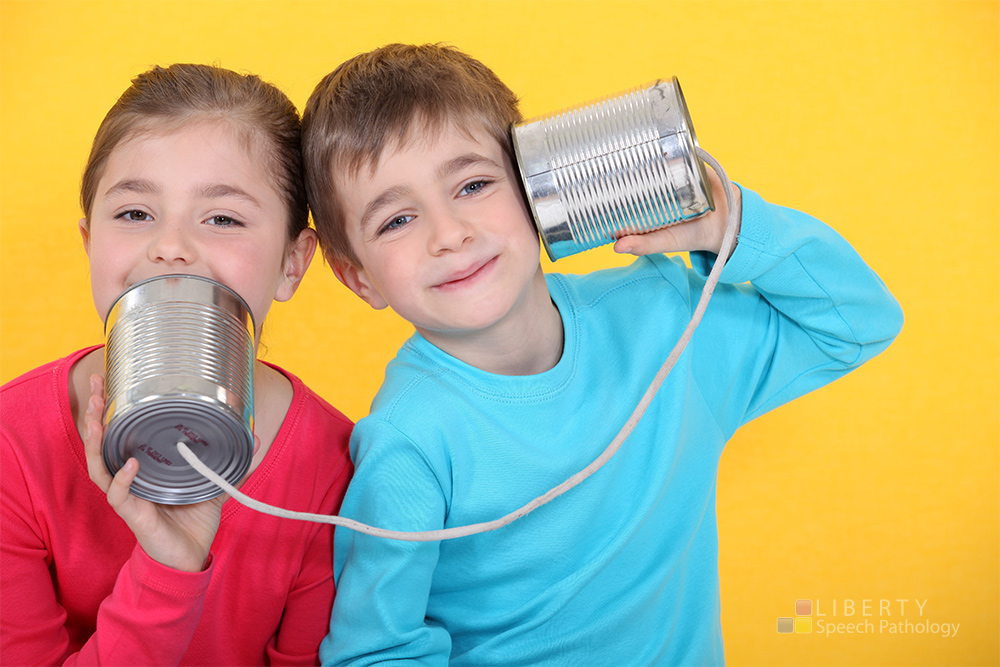Language Therapy
 Does your child look at you blankly when you ask tell him to do something? Does your child mix up her words (eg “See that girl, he’s my friend!) or sometimes have trouble remembering the word she wants to say? Does he answer a question like “how are you Johnny?” with “I’m four years old”? Your child might have difficulty with his or her language.
Does your child look at you blankly when you ask tell him to do something? Does your child mix up her words (eg “See that girl, he’s my friend!) or sometimes have trouble remembering the word she wants to say? Does he answer a question like “how are you Johnny?” with “I’m four years old”? Your child might have difficulty with his or her language.
‘Language’ is different from ‘speech’. When we talk about speech, we mean the sounds (eg consonants and vowels) and how they are put together to form words. When we talk about language, we mean the words themselves and how they are put together to form meaning.
How can Liberty Speech Pathology help?
If you are concerned about your child’s language, Liberty Speech Pathology can provide your child with:
- An assessment (evaluation) to thoroughly explore your child’s understanding of language and use of language.
- A report to give you information and a summary of your child’s language difficulties. This is often useful information for your child’s Child Care Centre, Kindy or School teacher to have.
- Friendly, game based therapy to help remediate your child’s language difficulties
- Fun take-home activities for home or school practice.
Examples of Language Difficulties
Your child may have a language delay or disorder if he or she:
- Uses fewer words than other children his or her age
- Uses gestures and pointing rather than words to request things
- Has trouble understanding what some common words mean
- Uses shorter sentences than other children his or her age
- Has trouble remembering the word he or she want to say
- Uses incorrect grammar. For example, getting ‘he’ and ‘she’ mixed up – “I like that girl. He’s pretty”; using the wrong verb tense (we walks yesterday), difficulty with plurals (eg. “I have two bird” instead of “I have two birds”).
- Doesn’t understand questions
- Has difficulty asking questions
- Has trouble retelling a story
- Has difficulty saying things a different way if someone doesn’t understand him
- Has trouble telling you a sequence of events that has happened in the day
- Has difficulty following instructions
- Has difficulty using social language (eg asking permission, apologising, following social rules)
- Doesn’t understand particular concepts (eg tall, short, new, old, clean, dirty, wet, dry)
- Finds it hard to express how he or she is feeling (happy, sad, upset, angry)
- Has difficulty expressing his or her physical state (eg hungry, thirsty, sore)
- Uses fewer words than other children the same age
- Finds it hard to identify and solve problems
- Doesn’t understand multiple meaning words (eg “bark”: a dog barks, bark on a tree)
- Doesn’t understand figurative language (“he turned over a new leaf”)
- Finds it difficult to follow a conversation when he is in a group
- Often doesn’t quite understand jokes
See our Speech Pathology Child Checklists to see which language difficulties may be a concern for your child’s age.



